 April 23, 2013
April 23, 2013 The Rise of the Musicpreneur (Part 2/3)
Written by Tommy Darker.
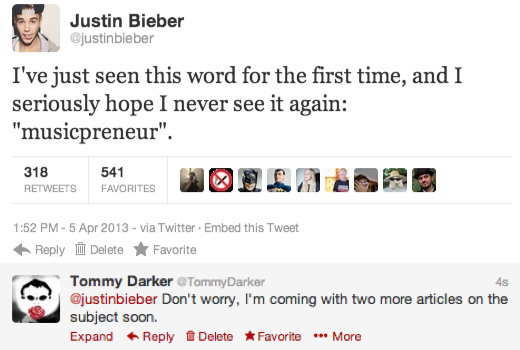 (Hint: the image is fake and humorous)
(Hint: the image is fake and humorous)
Some artists wanted to hear more about the subject, so here’s part #2.
In the first part of the Rise of the Musicpreneur, I highlighted the business and online assets a modern music artist should take care of.
Today, I will touch upon the practical side of the topic. It has to do with the agenda every artist should maintain in regards to Marketing, Live Performance, Creation and Fans.
II In the field
Once the automated system is ready and working in the backstage, doing all the dirty work for you, you can take care of the fun and creative side of the game: get your hands dirty.
The borderlines between promotion, live performances, viral marketing, art creation and fan engagement all intersect elegantly with each other, making it blur to say when each one starts or ends. Just like the various interracial blends we see nowadays because the geographical boarders have collapsed (mixed race people are beautiful, I think), the same happened with the connectivity offered by the world wide web.
New terms are created and the existing schemes get reshaped gradually. This inextricable connectivity and interdependency leads to one new pattern of artists to dominate in the future: the generation of musicpreneurs, who are polymaths and knowledgeable beyond the verge of their art.
The spine is the same, the tools and the execution change though. Let’s see the 4 categories I see in play.
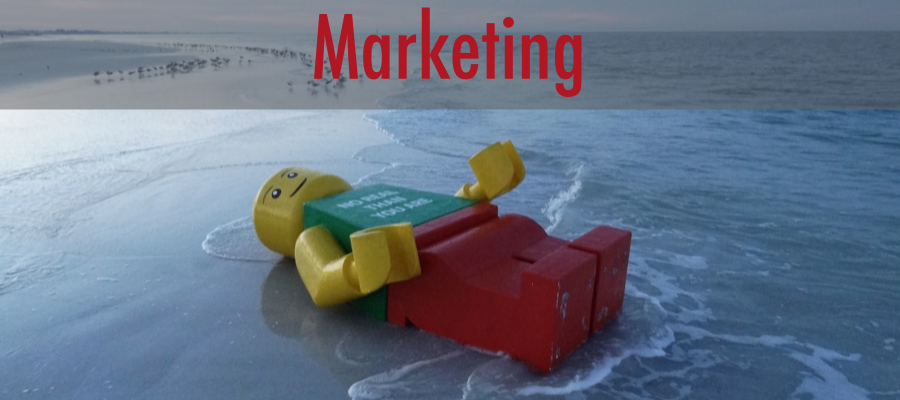 Remember: you’re marketing to real people
Remember: you’re marketing to real people
1. Marketing
Marketing your music doesn’t have to be that difficult and complicated in your mind. Have one thing in mind: labels sell to mass distribution channels and artists to fans. In other words, your goal is to find each fan and nurture them individually, building relationships, not mass market your music in iTunes and radio and Billboard.
Simple marketing principle: think where you can meet your fans and find the most simple way to reach them. Doing little things, one at a time, and cultivating a strong and supportive following, you can have big niche success. Have in mind: personalization is the way to break the mass culture.
Some of the modern responsibilities of the marketing guy of your band:
Press portfolio creation. The outlets that create buzz and build anticipation for indie musicians are the - equally independent - blogs. A musician wants to give great music to the world and the blogs want to suggest great music to the world: awesome marriage. However, nobody wants to feel sold out. Especially in the digital era, when everyone can become ‘friends’ with anyone, a more intimate relationship is valued more compared to the past. When I say build a portfolio, I mean build real trust with bloggers, so overtime you won’t have to send them Press Releases so they can ‘do you a favor’, but you will trust them with an exclusive and they will help you out to spread the word (sounds more beautiful, doesn’t it?). Plus, ‘in behalf of our clients…’ from a label doesn’t make bloggers salivate anymore. Play it personal and keep the contacts in house.
Music as a marketing tool. I’m a firm believer that recorded music will not be a revenue source in the future. Digital music will eventually become a commodity and commodified products tend to have zero market price. This is great news, you can use music to attract fans and make money with through other streams. What is the best way to get people to know about you? To be scattered around the web, so people can talk about you and stumble upon you! With the understanding of that, you need a person detached from the traditional marketing mindset, ready to experiment. This is the best time for inexperienced marketers with a basic understanding of marketing to make their experiments.
Follow up/Engagement. Do you think the circle is over after you make a sale? Nope. This is when the circle opens, and it’s up to you when it will be closed again, depending whether you neglect the fan/buyers or not. Old marketing stratagem: spend money on an advertising shower and see who we can get wet. New marketing stratagem: make the first sales, follow up and fuel the referral system to ‘clone’ your buyers. Needless to say, the more engaged you are with your fans, the more likely they are to refer to others, regardless if they buy or not. The person for this job has to be an insider, who understands the fans 100%, has social skills and is authorized to represent the band.
Experimentation for viral exposure. Everyone tries to find the magic formula for viral marketing, even more people are using this word, but the truth is: virality is so beautiful because it’s unpredictable to a large percentage. There are certain triggers that affect the mass culture and emotions that are more optimal to spread, but in reality you just play with uncertainty. That’s the definition of virality, you cannot target whom your message will reach, and that’s what a successful viral spread is. That also means that you have lots of space to experiment with small things, see whether they catch on, try some more and leverage the ones that really work! Find a creative individual who has knowledge of how the media work and what the triggers are and get started.
Manage mailing list. Permission Marketing by Seth Godin is the bible on this subject. Email seems to be the only evergreen way of communication - till I’m proven wrong - and it has the best conversion rates in terms of sales. The environment in social media favors meeting friends, not making sales. Email is a getaway to market directly to fans and be more hardcore, with their own permission. The person who gets in charge needs to understand the difference between ‘communicate’ and ‘spam’. My suggestion is that you keep this in house as well.
Spot the influencers. The strongest way of marketing today is through referrals. Dropbox grew this way, to name one business. Also viral marketing is exactly this: referrals. In the networked society of today, small niche superstars have popped up, having formed their own small and targeted armies, influencing groups of people that hear what they have to say. Getting endorsed by one of them is a key feature for your success. Go, show your social side and meet people. It will be better if your next release gets announced by multiple sources to targeted audience, don’t you think?
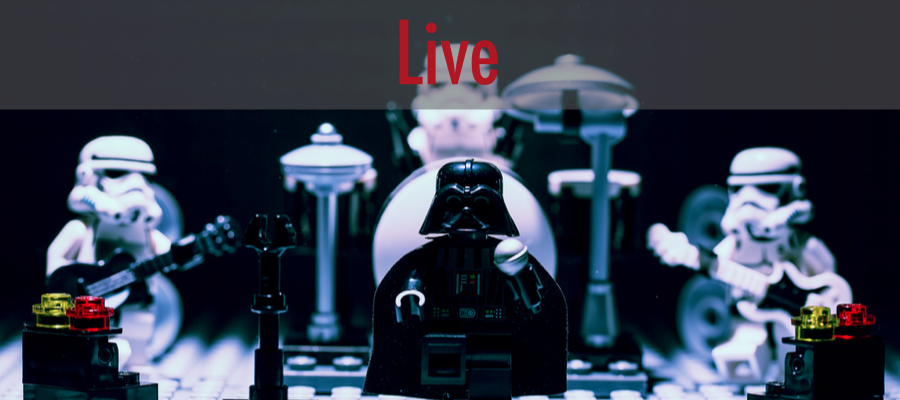 Credit: Flickr ‘-shr-‘
Credit: Flickr ‘-shr-‘
2. Live
Live performance revenues are rising over the years, they are the most unique artistic expression, they unite like-minded people together… what else should I say to convince you that you have to take good care of it? Although most bands believe they’re entitled with a gig of 10-40 people in a shitty bar, there’s more than that, if you have the right skills or people to help along.
For a better live performance:
Lights engineering. Your show and music might be incredible, but in a live performance the lights can make a difference. Actually, after long conversations that I had with venue owners, they admit themselves: the show of bands without their own lights arrangement fluctuates between mediocrity and unoriginality (not talking about the music here). It’s high time you make the difference it a step forward. It’s probably pricey, I know. But making this sacrifice is wise, I reckon.
Live sound engineering. That’s a must-have person to be in your team. Music is what the audience is here about, cater it properly. A live sound engineer with experience can visualize the sound as it reflects on the walls and the bodies of the fans, making the proper arrangements to ensure the result is as big as your talent. Don’t be cheap on that.
Booking skills. I’m not a fan of booking small bars with zero context for any reason. A good venue would do, provided it gives you the ability to contextualize your experience and tailor it according to your needs. Places like that require good booking skills and connections. If you don’t have the right person to provide smart solutions - and close the deal for you - then think about hitting the road and getting things done yourself. With friction comes experience and success, it’s all about communication after all. A witty personality never fails, got experience on that. Internationally, go for local booking agents who are familiar with the local rules and peculiarities.
Promo material creation. This one probably goes for the person who will design your band’s branding. Promo material can have many different formats, from a simple cover photo on Facebook to a poster that hangs on the streetlights. Each one has a different visibility and approach, and an efficient designer needs to be aware of that.
Live photography. Do you have an individual to take pictures of your live show? You should. A proper photography can propel the perception about you and your artistry. Just go on a band’s website and check out the live pictures. You’ll notice some differences. See how they can increase the perception and likeability and choose to have an ingenious photographer with you. Money worth spending.
Video shooting. Ever done a live video shooting during your gigs? Well, not many bands do. Is it because they haven’t thought about it? No. In a visual world, enriching your news and media with well shot footage can increase your stock market price drastically and create a perception about you that can only be regarded as premium. This is what message you want to convey: premium and professional. With video footage of your performances you transcend the average level of the majority of the bands you’re in the same market with. Invest on it.
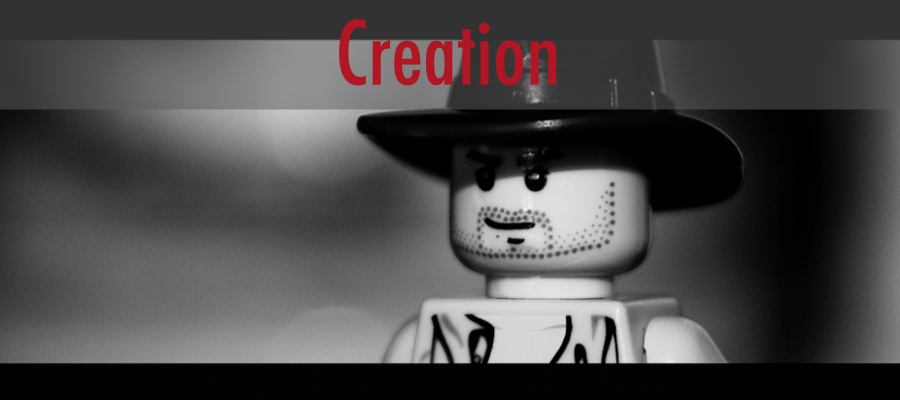 Credit: Flickr ‘Bikerock’
Credit: Flickr ‘Bikerock’
3. Creation
Except for the assets you need in order to get the engine running, you also need to fuel that engine with hi-quality art. This is the fun part. Time to create. Music composition is excluded from this list. You are the one who gets this done, here we’re talking about everything else surrounding your (awesome) songwriting.
Music video production. The sooner you understand the basic premise of the digital world, the faster results you’ll get. We live in a visual world. Period. We also live in a cluttered world where everyone needs attention. The more sensations you trigger, the better the chances for people to notice. Video is a standalone art, so you’d better approach it the same way. My advice: don’t shoot videos yourself, unless you really got the expertise. Otherwise, hire a professional who understands what your artistry is all about. Then let them do their job. Collaborate closely only on the context of the video, so it can always enhance your current branding.
Music production/mastering. There’s a weird perception around, that you need to have recorded music in order to get a proper fanbase. A quick counter-argument: YouTube stars and Bedroom artists. It’s the music ideas that count. However, a YouTube star will never be considered to be a professional. Because the versions of their songs might sound cool and raw, but the perception of quality is not there. Plus, a non-professionally-recorded music can never be considered to be a marketable product.
You need to work on that, so find a producer that understands your needs and vision. Mastering the same, the final end result needs to be the idealized version of your songs. Otherwise why record them in the first place? If you can get the job done in a home studio, go for it. If not, get a pro in your team.
Create unique products to incentivize. Think as a fan. How many times have you seen bands selling t-shirts, pins etc.? Boring, would you buy another t-shirt, especially if it’s not properly designed to be worn casually? Many bands sell t-shirts without knowing why (maybe because everybody’s doing so). Don’t think inside the box where you store the tees in. The purpose of a unique product is to incentivize the fan to buy it. It’s something that can make other people talk about it and the owner to feel special to have around. A handmade t-shirt? A USB-bracelet? A matchbox with your lyrics in it? You get it.
Think premium. Nobody talks (and cares) about usual products. The best way to do that is to collaborate with talented artists and work on something together. This will allow you to create products on demand, without having to stock your storage rooms with undesirable boxes that scream ‘sell me please!’ The old model ‘I stock the house and wait for people to buy’ is over.
Photography portfolio. Again, just to be clear. (1) It’s a visual world. (2) It’s all about the perception. Check out the difference between a picture shot by your iPhone and a professional and retouched picture. People consume more pictures every day and it becomes evident that you need to invest in it and make photography your flagship asset. I see two types of photography to use: static photoshoots that capture your branding and pictures from the band’s activities (studio, events etc.), so you can document your lifecycle beautifully. Good photography will make you stand out, take it seriously and leave it in the hands of a pro you trust.
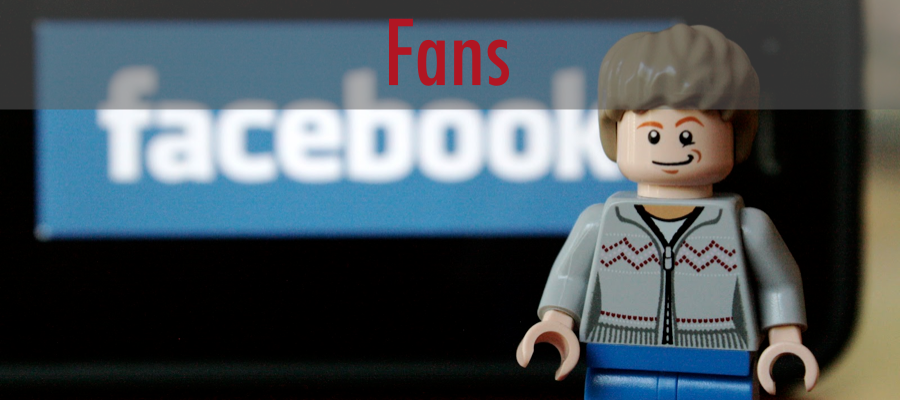 Engagement is the new currency
Engagement is the new currency
4. Fans
Interaction brings creators and fans together, blurring the lines and destroying the superstar mystification around an artist. The era of ‘let the labels reach the fans for us’ is long over. Isn’t it obvious? Since disruptive advertising becomes more and more obsolete and people mute it wherever it appears, just like another ‘visual immune system’, creating an experience is the only way to get people on board.
Don’t disrupt, offer an experience they can talk about. They are your evangelists. And I don’t mention that because it’s a hot word to use in the hypey internet world, but due to its effectiveness in the real world. It’s all about the fans, and it’s vital that you have a person in the team that totally understands that.
Keeping that in mind, here are four things someone needs to take care of for a fan-oriented artist:
Prepare an insider experience. “There is a different value between seeing something as an insider, live, first and with the rest of the people”, I said a while back. The Direct-2-Fan model changed things. Being a consumer and buying the final product is not enough. This is why you need to create a unique experience for the inner circle of your fandom, your True Fans. This experience has to be representative of your real side. Exclusive authenticity in full disclosure is what you’re selling here. Many creative ways to do it, they could fill a book.
Manage the tribe of followers. When people devote time and money to you and your art, you have to be grateful. We live in an era with short attention spans and this is a blessing. You need to have an individual manage this small army. Preferably, that would be a member of the band itself, who gets the vibe of the ‘inside job’. The responsibility here is simple. Interact with them and treat them as human beings. Solve their problems and give them attention back. Time consuming, I know. That’s why many will laugh out loud, and only a few get rewarded by actually doing it. Again, read Seth Godin’s Tribes to find out the characteristics of a tribe.
Update online profiles. Your profiles represent your brand, your music, your character. A desert profile shows abandonment and, unfortunately, it counts negatively. Get lost for a long time and you’ll be forgotten. A consistent social media strategy needs to be designed and implemented by a savvy individual, who could be a marketing guy who is really close with your band. Hootsuite can help.
Creation of social objects. Social objects, as explained by Jyri Engestrom, are topics people care and talk about. It’s meaningful conversations to them. This only means one thing: you will get to know your fans better by starting conversations and discovering what they care about. And the fans you attract, your cult, they are probably part of who you are as well. Make it part of your mindset and daily checklist.
###
The second part of the series came to an end. I hope you found it useful and it helped you streamline some of your thoughts on the subject. The last part should be out in a few days, here, in MTT.
My question to you: what else would you include in the list?
___
I’m Tommy Darker, the writing alter ego of an imaginative independent musician. I started ‘Think Beyond The Band’ because I feel proud of what I’ve accomplished so far and I like helping other fellow musicians that struggle with the same problems.
I love starting conversations, join me in The Darker Side to talk about the music business. If you share the same mindset, find me on Facebook and Twitter and let’s talk!
 Entrepreneurship,
Entrepreneurship,  Independent,
Independent,  musicpreneur |
musicpreneur |  1 Reference
1 Reference 





Reader Comments (10)
What I'm currently torn between is whether to produce content (music) that isn't of a professional level. I don't have the resources right now to do this, on the other hand is it better to just have any kind of content out there?
Great article, and mostly I have to agree with all of your insights and advice. Except on making videos. The availability of technology has changed the expectation in the quality of visual media viewers enjoy, an artist can just hit the record button and spit out a low fi video all by themselves that fans will love. It's advisable to have all kinds of video content both slick and home baked if possible, but waiting around for the money/personnel to make stuff happen is a good way to end up with no content at all.
Great article Tommy! You sure cover a lot of ground. And you put your money where your mouth is when it comes to choosing great images. I never knew Legos were so versatile! ;)
@ Brian
Cheers mate! Thanks for the encouraging comment. Lego pictures are officially part of my branding ;)
@ Neill
Mate, I think music will always be the priority. And personally I would never sacrifice its quality to do something else. 'Any kind of content (music)' is never an acceptable answer, simply put.
I'm a musician and quite sensitive about this: if you can't compose and produce proper music, then why bother being in the music scene in the first place?
The resources are out there, that's for sure.
@ Circe Link
Well, I will agree with you that there are many ways to approach video production (and visualization in general). Especially with technology available broadly for everyone to use.
But professionals will always be one step ahead, because they understand the core, the fundamentals of this standalone art. Even if they just shoot a lo fi video, there will always be a difference.
Personally, this task works way better when I trust professionals that understand my vision. If it has worked differently for you, that's alright as well :) That's the beauty of seeing things differently.
I'm a mktg guy. love everything bout music..the biz, listening, trying to play, etc.this post was one of the best I've read for helping to open the mind and guide musicians who actually want to monetize their talent. Well done!
This is so great, it's a series that all industrious, business-savvy musicians need to read. After all, you have to actually care about success to make it happen, and if you only focus on the music then the business side of things aren't going to work out so well.
The only part I take issue with is where you say "I’m a firm believer that recorded music will not be a revenue source in the future." Very untrue, as Amanda Palmer can attest. Everybody except the backwards folks in the industry can agree that you can't make your fans pay for your album; however, you can make them want to buy it! That's part of the game plan baby! If you make that personal connection with fans, they'll willingly pay for everything, not least the music itself.
In the end, I think we can agree that by themselves recordings aren't highly profitable, and that merch and crowdfunding are already becoming much more important sources of revenue than record sales, and that musicians need to become more aware of how to leverage those sources of income.
P.S. Tommy, I too I love Legos. Pulling out my old set the second I stop typing!
@ Alan
Cheers for your comment mate! I'm glad it's relevant to a large range of people.
@ Riley
Hey mate! Glad you reembered your old love, I'm playing everyday while brainstorming!
As about recorded music i) it will not become obsolete - on the contrary, it will separate amateurs from pros and will always represent the ideal version of a song (except if you're a jam band) and ii) ok, I agree that you can make fans want to pay for music. I don't disagree up to this point. The question is: why make profit from it when you have a great way to build awareness and market other, more profitable products with? Fan experiences will bring profit in the future, not recorded music. If Amanda says the opposite, I guess I disagree.
It's indeed great to think of a future like this! But it will take some time, musicians need to get educated and build strong foundations first. And that comes with time. It's a slow, but exciting process.
Cheers for the upbeat comment mate!